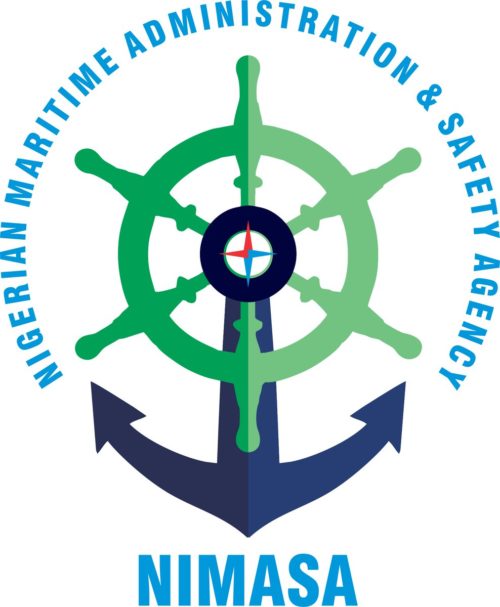Paragraph 1: Incident Alert and Initial Response
On August 28, 2025, the Nigerian Maritime Administration and Safety Agency (NIMASA) received a critical alert from the Maritime Domain Awareness for Trade Gulf of Guinea (MDAT-GoG) Watchkeepers. The alert reported an attempted boarding of the Malta-flagged chemical tanker, Endo Ponente, near Lome Port, Togo. Initially reported at position 05°10’N, 001°23’E, subsequent information from NIMASA’s Command, Control, Communications, Computers, and Intelligence (C4i) Centre located the vessel at 04°19’16” N, 01°35’59” E, placing it within Ghana’s Exclusive Economic Zone (EEZ). This shift in location underscores the dynamic nature of maritime security situations and the importance of accurate and timely information. Upon receiving the alert, NIMASA activated its response protocol, immediately dispatching the Nigerian Navy Special Mission Vessel DB Lagos, operating under the Deep Blue Project, to the distressed tanker’s location.
Paragraph 2: Crew Safety and International Collaboration:
As the DB Lagos raced towards the Endo Ponente, the tanker’s crew took refuge in the vessel’s citadel, a secure area designed to protect them during piracy or security breaches. This action aligns with established international best practices for ship security in high-risk situations. Meanwhile, NIMASA initiated coordinated efforts with the Nigerian Navy and other regional maritime security agencies. This collaborative approach aims to ensure the crew’s safety and facilitate a thorough investigation into the attempted boarding incident. Regional cooperation is crucial in addressing maritime security challenges in the Gulf of Guinea, as it allows for shared intelligence, coordinated responses, and a united front against criminal activities.
Paragraph 3: NIMASA’s Commitment to Regional Maritime Security:
Dr. Dayo Mobereola, the Director-General of NIMASA, emphasized the agency’s unwavering commitment to regional maritime security cooperation. He reiterated NIMASA’s dedication to bolstering security collaboration throughout the Gulf of Guinea to safeguard seafarers, deter criminal activity, and ensure safer maritime trade. The Deep Blue Project, a comprehensive maritime security initiative launched by Nigeria, plays a pivotal role in this effort. It provides resources, technology, and training to enhance maritime domain awareness, response capabilities, and law enforcement efforts in the region. Mobereola’s statement underscores the importance of a collective approach to tackling piracy and other maritime crimes.
Paragraph 4: The Deep Blue Project and its Significance:
The Deep Blue Project is a multifaceted initiative involving various security agencies and assets. It incorporates specialized vessels, aircraft, and advanced surveillance technology to monitor and respond to maritime threats. The project also emphasizes capacity building and training for personnel involved in maritime security operations. The deployment of the DB Lagos in response to the Endo Ponente incident demonstrates the project’s operational readiness and its ability to react swiftly to evolving security situations. The Deep Blue Project represents a significant investment by Nigeria in enhancing maritime security within its own waters and contributing to regional stability.
Paragraph 5: The Endo Ponente and its Operational Profile:
The Endo Ponente, a chemical tanker flagged under Malta, is categorized as a moderate-risk vessel. It operates extensively within the West, Central, and Southern African regions, transporting various chemical products. Its last port of call prior to the incident was Kalamu, in the Democratic Republic of Congo. Understanding the vessel’s typical routes and cargo provides valuable context for assessing the potential motivations behind the attempted boarding. Chemical tankers, while not as frequently targeted as other vessel types, can still be vulnerable to piracy and other criminal activities, particularly in high-risk areas like the Gulf of Guinea.
Paragraph 6: The Gulf of Guinea: A Hotspot for Maritime Crime:
The Gulf of Guinea has gained notoriety as a global hotspot for maritime piracy and other illicit activities. Factors contributing to this include weak governance, porous borders, and the presence of organized criminal networks. The strategic location of the Gulf of Guinea, with its rich natural resources and bustling shipping lanes, makes it an attractive target for pirates and smugglers. International efforts to combat piracy in the region have intensified, with increased naval patrols and collaborations between nations and maritime security agencies. The incident involving the Endo Ponente serves as a stark reminder of the ongoing security challenges in the Gulf of Guinea and the need for continued vigilance and cooperation.














